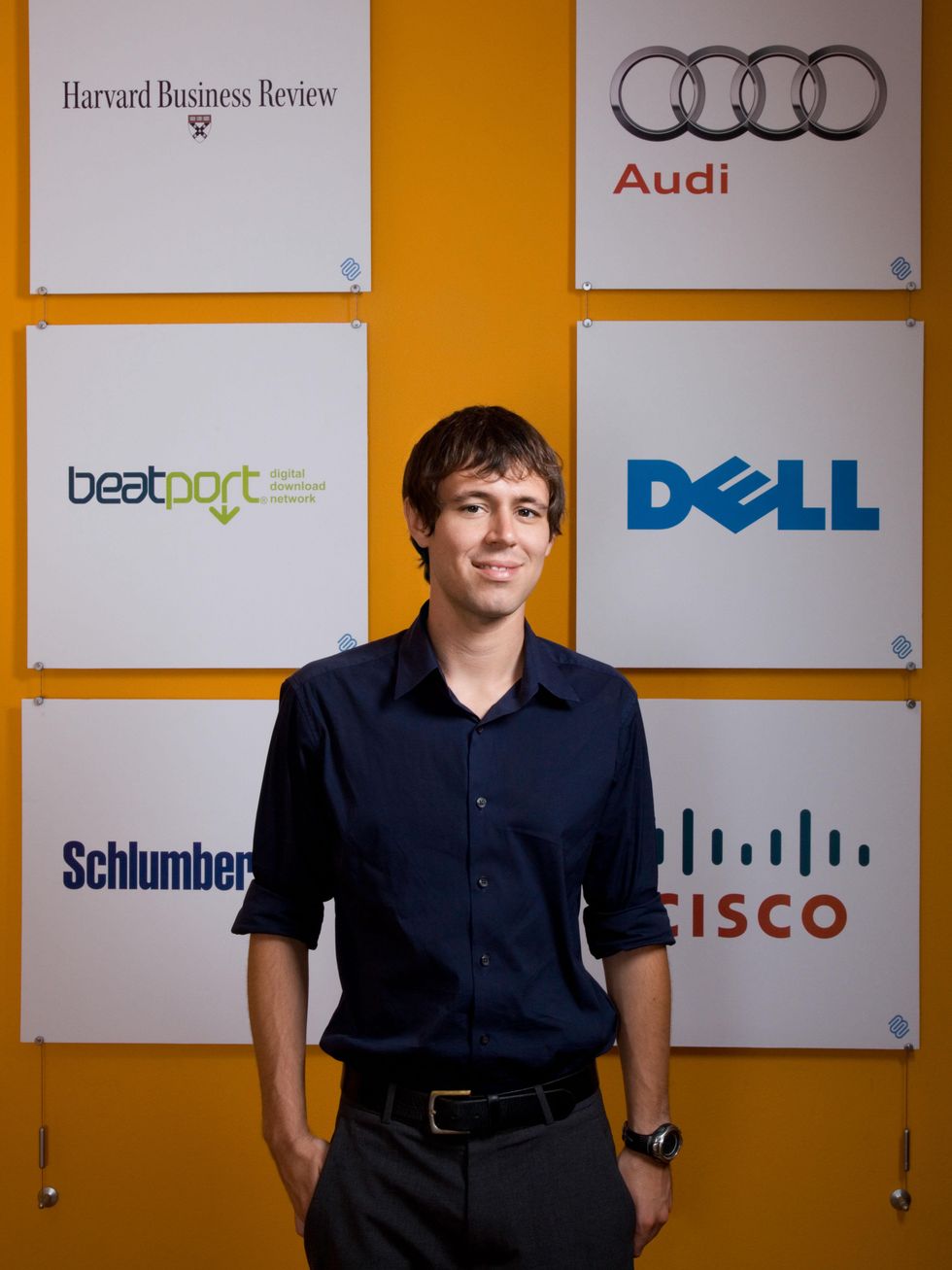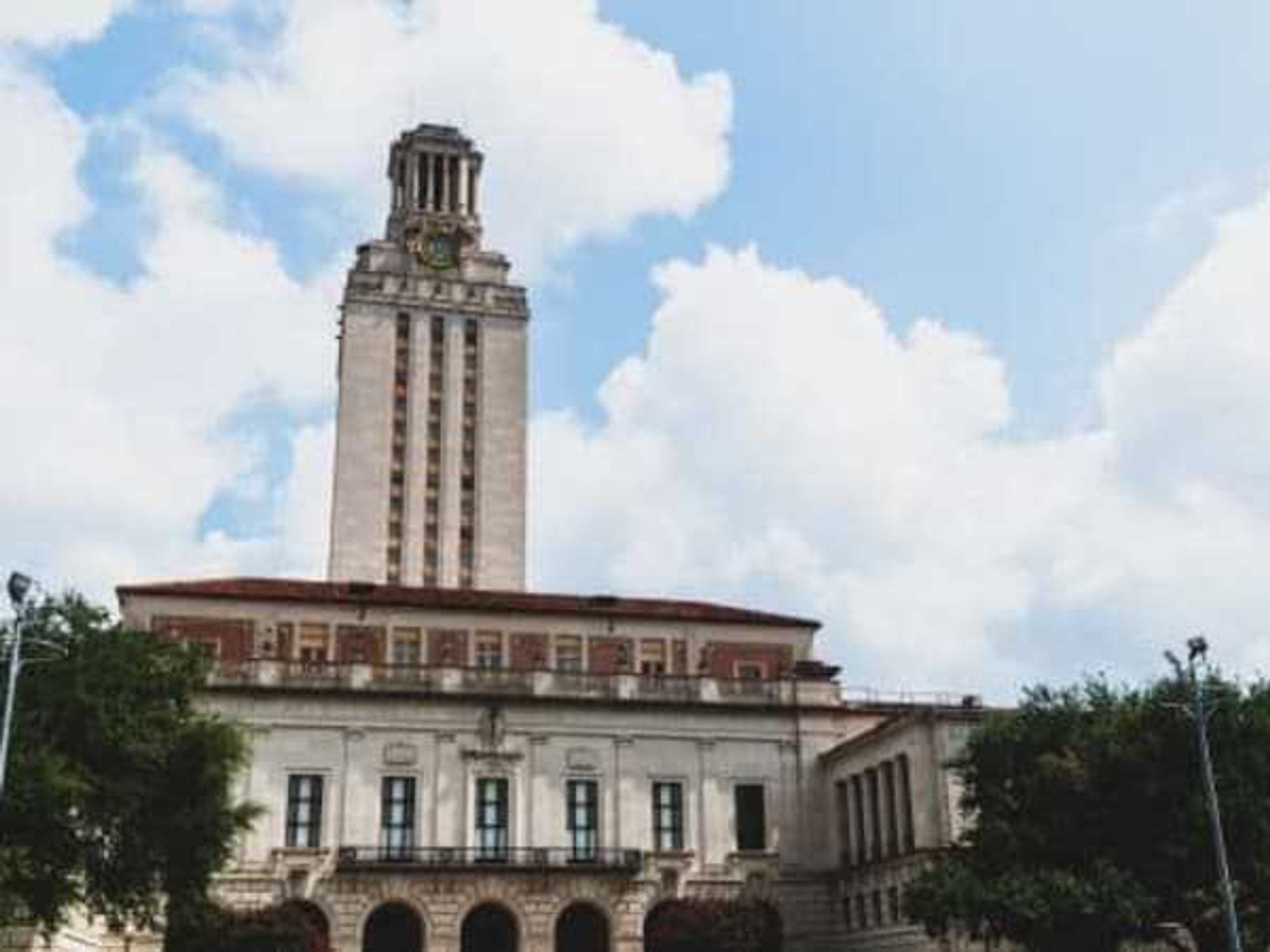entrepreneurs
Mutual Mobile CEO John Arrow draws strength from Steve Jobs, Ramen and high school algebra

John Arrow, the amiable and unassuming 24 year-old CEO of Austin start-up Mutual Mobile—the largest mobile app solutions company in the nation—doesn’t want to be a tech rock star. And although he has the brains, the success and the means, he is disdainful of the idea of driving a Porsche Boxster, throwing elaborate parties or having pimped out office spaces.
Though he was a kid during the dot-com heyday and subsequent bust of the 90s, he paid attention to the hard lessons learned from flashy dot-com disasters. Arrow lists aviator Howard Hughes, computer genius Bill Gates and engineer, philanthropist, Paypal and SpaceX entrepreneur Elon Musk as heroes he admires.
Just days after the Apple shake up, there is another hero who stands out in particular. Had it not been for the visionary Ex-Apple CEO Steve Jobs, Arrow might not have created Mutual Mobile, for it was during Arrow’s senior year at the University of Texas that the iPhone was released and Jobs presented the concept of the App Store. Arrow, always forward-thinking, saw the opportunity of a lifetime.
Recognizing that there was not a major player established in the field, he and his fellow UT Flight Club friends and future business partners, Tarun Nimmagadda, Mickey Ristroph and Jason Story, had the opportunity to establish themselves as the world’s experts on mobile. He dropped out of school his senior year and never looked back. Jobs set into motion Arrow’s revolution. He was ready to, as Jobs would say, “put a dent in the universe.”
But this notion was saying that you should start something sustainable enough so the founders can buy Ramen noodles. That’s what we set out to do—have this small, intermediate goal… Our first goal was to reach $1 profit.
In addition to lessons in business by way of childhood lemonade and hot cocoa stands, Arrow learned how to program at a very early age. By the age of 14, he had written an eBook and computer software program enabling parents to monitor who their children were talking to online. “My mom is a psychotherapist and specializes in helping children and their parents," he explains. "She really convinced me that parents needed such a program to give them a leg up in what was the brave new world of internet chat rooms.”
The business expanded and because he was too young to have a credit card or accept credit card payments, he developed his own payment processing site called FusionPay, allowing people to pay with checks online rather than with credit cards. When asked what prompted this business endeavor, Arrow chuckles, “It's kind of a funny story. During the freshman year of high school I was taking really challenging classes, mostly all honors. Honors algebra was very difficult for me and I remember doing poorly on the first several exams… I thought, I'm going to figure out how to create my own business and not have to depend on school. That was very much so the fuel I needed.”
Soon this high school sophomore was making more than his teachers. “Ultimately that situation of doing poorly can be exhilarating as one figures out a different way to solve a problem."
Arrow lived in two technologically advanced cities—Seattle and Austin—during the tech bubble and bust around the age of 12. What he found was that people’s causation vs. correlation equations were completely skewed. “During the bubble, companies had big swanky offices and huge blow out parties. This does not correlate to success,” he says.
“Mutual Mobile doesn’t copy the things in the tech boom that caused the bust. We know that the big pimped out offices and crazy big parties did not cause the success. The mobile boom is different from the tech boom, and we don’t want to imitate what wasn’t successful.”
Unlike most start-ups, Mutual Mobile did not finance its inception through large investors. Instead, the company pooled resources and funded itself through consulting services. “We started on the notion of ‘Ramen profitability,’" stated Mutual Mobile Chief Operating Officer Tarun Nimmagadda in a recent Austin Post interview. “The idea is when you start a business people say 'reach for the stars,' like Facebook, like Google. But this notion was saying that you should start something sustainable enough so the founders can buy Ramen noodles. That’s what we set out to do – have this small, intermediate goal… Our first goal was to reach $1 profit, then second goal was $10 profit, we’ve basically been doubling that goal every sixth months and now we’re in the tens of millions of dollars.”
Technology will eventually bring the coalescence of computer and human.
This “Ramen Profitability” model has allowed Mutual Mobile to grow from four employees in 2009 to 200 by the end of 2011. They have also rapidly expanded to offices in Austin, San Francisco and India and tout clients such as Google, Dell, Gowalla, StumbleUpon, Audi and Dell.
“Beyond perks and training, our employees thrive on the importance of the work that is being done here,” Nimmagadda told Austin StartUp.com. ”Mobile is poised to change our lives forever and Mutual Mobile is at the forefront of ushering in that future.”
Nimmagadda’s trend-spotting enthusiasm also gushes from Arrow. “History hasn't been linear, it has been exponential,” espoused Arrow. “The tech curve has been self-increased, and in two years, mobile growth has been as fast as fifteen years of computer growth.”
“I see the [mobile] industry being more about improving the human experience,” says Arrow. “Ten years from now, I can see mobile helping those that are visually impaired based on vibrations, allowing the brain to actually see the images. Technology will eventually bring the coalescence of computer and human. And Twenty years from now, technology will allow us to live forever. Something that allows people not to be at the whim of the aging process and diseases like Cancer and cardiac conditions.”
When asked about his biggest fear, Arrow sighs and states, “We're all finite. It’s the one thing we cannot control. It doesn't matter who you know, how much money you have… Everyone just has 24 hours in a day. My biggest fear is that there won't be enough minutes in the day to achieve what I'd like to achieve. The worst thing is not being focused on the problems I’d like to be focused on: affordable space travel, true artificial intelligence... I very much so want to have an impact in all of those. And the concern is, there is so much going on, how do you make sure those don't fall by the wayside, those [that] are really the most important?”
But then, Arrow, who often pilots his own plane and embarks on small sailing adventures, smiles and says, “The name of my sail boat is Present Moment. You should be happy with whatever you are doing. We try to make working at Mutual Mobile really fun. We'll go on a hike, or we’ll talk about business on the lake or while riding bikes. If you can strike a balance and the work that you're doing is fun and enjoyable, you don't really need to separate it out.”
John’s philosophy of a work-life balance is reminiscent of Jobs' 2005 Stanford University commencement advice : “The only way to do great work is to love what you do. If you haven’t found it yet, keep looking. Don’t settle. As with all matters of the heart, you’ll know when you find it.”
Arrow loves what he does and gives much credit to Jobs’ and his Apple store. “The news of his stepping down from the CEO position at Apple is sad,” says Arrow. “But, at least his legacy will live on. That’s the nice thing about creating a company.”


